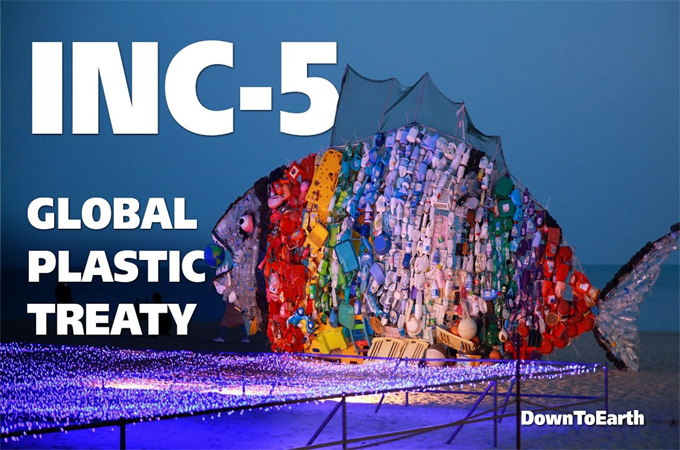The African Energy Chamber (AEC) strongly opposes the proposed Treaty on Plastics by the second part of the fifth session of the Intergovernmental Negotiating Committee, which aims to discuss the implementation of a legally binding instrument to address plastic pollution.
This treaty would reduce single-use plastic production levels and could cause significant economic damage to hydrocarbon-producing countries, particularly those in Africa.
The treaty's implementation would devastate the petrochemical industry in Africa, stifling growth of Africa's oil and gas industry, leading to increased energy poverty, hindered manufacturing, stalled industrialisation, and a decline in vital investments for the chemicals sector.
“The AEC calls on African nations, specifically Gabon, Ghana, Angola, and Senegal, to reject support for this treaty. We urge these countries to prioritise their energy and industrial needs over external environmental agendas that do not align with Africa's developmental priorities. Supporting this treaty would amount to shooting yourselves in the foot, making no sense for Africa's future,” stated NJ Ayuk, Executive Chairman of the AEC.
African countries, such as Gabon, Ghana, Angola, and Senegal, possess significant deposits of oil and gas resources that could potentially turn Africa's economy around through opportunities in petrochemical production.
However, the Treaty on Plastics would disrupt these growth, impacting Gabon's efforts to strengthen its economy.
Ongoing oil and gas projects in Senegal would also be jeopardised by the Treaty, as Sedin Engineering plans to build a refinery and petrochemical plant in the country leveraging offshore resources to produce high-value plastics and chemicals.
Ghana's ambitious petrochemical park would suffer significantly, undermining the country's industrial development.
The country plans to develop a $12 billion petroleum hub in Jomoro, which could drastically improve energy and food security across the West African region.
Angola, sub-Saharan Africa's second biggest oil producer, plans to enhance petrochemical production under efforts to diversify the oil-reliant economy.
Under the Gas Master Plan, Angola aims to bolster petrochemical and fertiliser production, supporting the creation of new industries.
The Treaty on Plastic could see a dramatic decline in oil, gas, and plastic demand, impacting Angola's progress to diversify and grow its economy.
Tanzania, home to upwards of 57 tcf of gas reserves, is also pursuing several petrochemical and natural gas projects.
The $42 billion Tanzania LNG project aims to accelerate industrialisation, positioning itself as a global hub for oil, gas, and associate by-products.
Projects such as the Tanzania Mbolea and Petrochemicals Company Kilwa Complex, which targets a capacity of 3.8 mtpa, are central to this goal.
Once completed, the complex will be the largest fertiliser-manufacturing factory in Africa producing a variety of petrochemical products, including urea and ammonia.
If the Treaty on Plastics is signed, it could significantly impact the project's ability to secure financing and reach completion.
Opposition to the Treaty on Plastics can help protect African nations' path to energy security, industrial growth, and economic prosperity. -OGN / TradeArabia News Service































